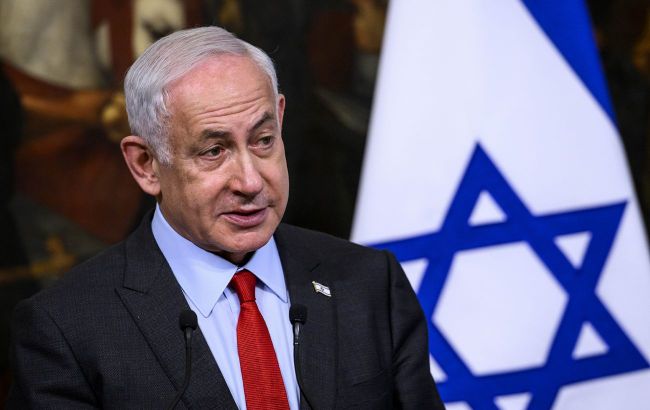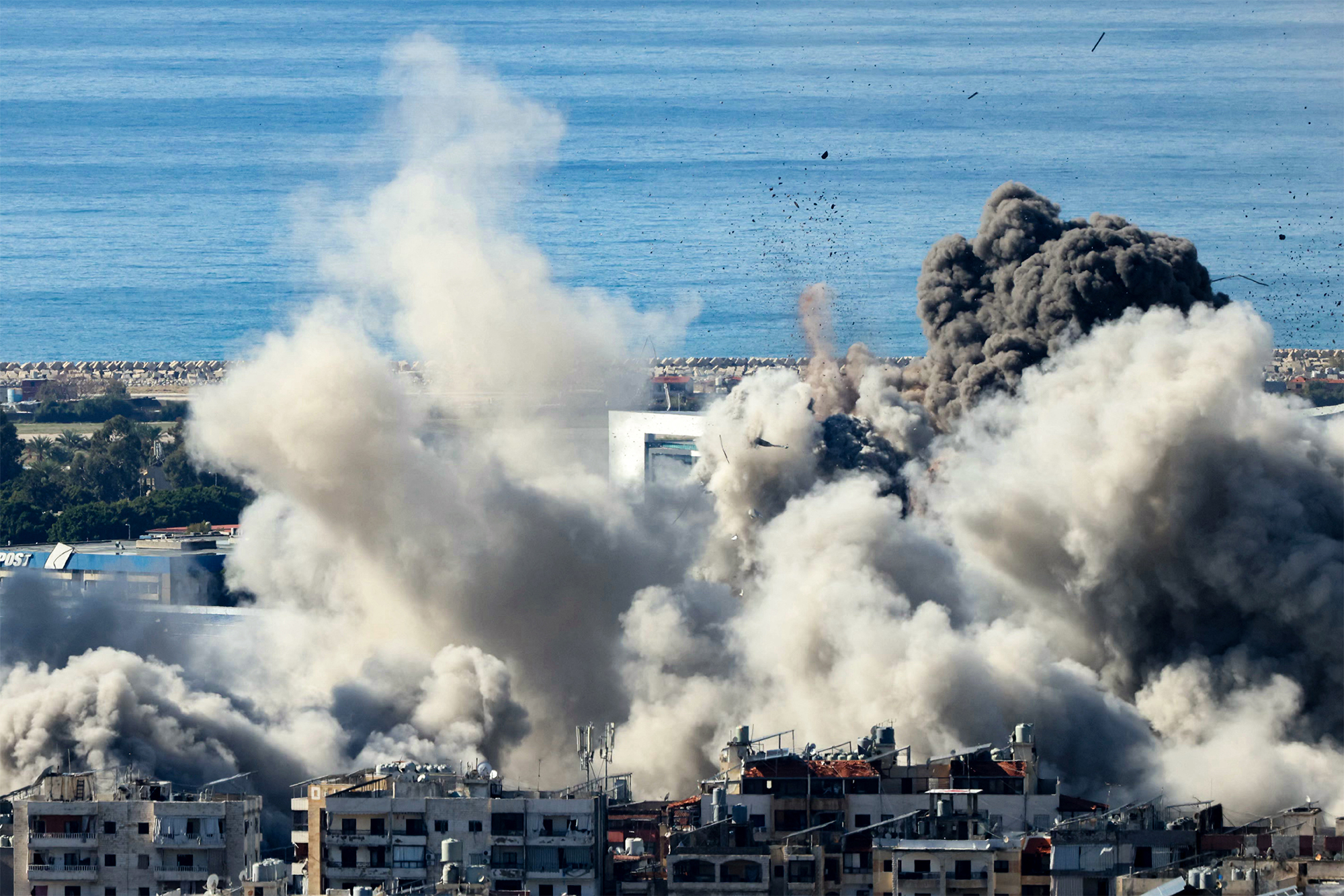Israel and Hezbollah ceasefire: Can lasting peace be achieved
 Israeli Prime Minister Benjamin Netanyahu (Photo: Getty Images)
Israeli Prime Minister Benjamin Netanyahu (Photo: Getty Images)
Israel and the terrorist group Hezbollah are finalizing a ceasefire agreement intended to end the active phase of hostilities in Lebanon and halt attacks on northern Israel.
More about what lies behind this agreement, the role of the United States, and the potential consequences for Israel and the Middle East - in the RBC-Ukraine's material below.
Contents
- Why is Israel conducting a military operation in Lebanon
- What does agreement includes
- Will the ceasefire last
After Donald Trump's victory in the US election, negotiations have intensified not only regarding the end of the Russian-Ukrainian war. In the Middle East, Israel on one side and the Hezbollah group, along with the official government of Lebanon on the other, are also close to a ceasefire.
According to Israeli and Lebanese media reports, the main points of the agreement have already been finalized, with only approval needed from the governments of Israel and Lebanon. The ceasefire is expected to end the latest phase of the conflict between Israel and Hezbollah, which began in October last year.
Why is Israel conducting a military operation in Lebanon?
Hezbollah, an organization that operates both as a political party in Lebanon and as a military and terrorist group, controls most of southern Lebanon. Hezbollah escalated attacks on northern Israel in October 2023 after Israel launched a military operation against Hamas in the Gaza Strip.
The operation against Hamas was a response to the group’s attack on October 7, which resulted in the deaths of about 1,200 people and the capture of over 250 hostages. Hezbollah immediately declared solidarity with Hamas and effectively opened a second front, intensively shelling northern Israel. These attacks forced the evacuation of over 60,000 residents from the area.
In September 2024, Israel eliminated nearly all of Hezbollah’s leadership and increased airstrikes on the group’s facilities. On September 30, the Israel Defense Forces (IDF) launched a ground operation against Hezbollah in southern Lebanon.
Despite Israel's proclaimed military successes, Hezbollah has not ceased its attacks. Since late October, US Special Envoy Amos Hochstein has been working to mediate a ceasefire agreement between Israel, Hezbollah, and Lebanon.
What does agreement include?
According to Haaretz, the agreement comprises three stages: A ceasefire, with Hezbollah withdrawing its forces north of Lebanon’s Litani River; Israel’s withdrawal from southern Lebanon; Israeli-Lebanese negotiations to demarcate disputed border areas.
Israel does not plan to establish a buffer zone in Lebanon, unlike during the previous operation from 1982 to 2000, as reported by Israeli Channel 12.

Hezbollah facilities under attack by Israeli aircraft in southern Beirut (photo: Getty images).
Israel expects a letter from Washington affirming its right to use force if Hezbollah violates the ceasefire agreement, especially in the event of inaction by Lebanese or international troops.
The primary goal of Israel's operation in Lebanon was the destruction of Hezbollah’s military, civil, and economic infrastructure. Additionally, Israel aims to ensure that no weapons or militants from Hezbollah remain in the buffer zone between the internationally recognized Israeli-Lebanese border and the Litani River.
"Now, the discussion is no longer about destroying Hezbollah but about creating conditions under which residents of northern Israeli towns can return home," said Zeev Hanin, an Israeli political scientist and professor at Bar-Ilan University, in a comment to RBC-Ukraine. "It must be said that residents of northern towns, to put it mildly, are skeptical that this agreement will ensure their safety."
The ceasefire will be monitored by an international body under the auspices of the United States and other states. This body will operate based on UN Security Council Resolution 1701, adopted after the 2006 Lebanon War.
"After the 2006 Lebanon War, UN Resolution 1701 stipulated that Hezbollah must withdraw north of the Litani River and that no weapons, except those of the official Lebanese army, could be present in that territory. However, the Lebanese government has already declared that 'Hezbollah are our brothers,' and it naturally will not act against them in favor of Israel," Hanin said.
According to him, it remains unclear how much of this agreement is driven by politics, geopolitics, or pragmatic considerations.
Will the ceasefire last?
Netanyahu plans to present the ceasefire to the public as a benefit for Israel rather than a compromise, according to Israeli broadcaster Kan.
Israeli Foreign Minister Gideon Sa’ar said the ceasefire agreement with Lebanon will depend on measures to disarm Hezbollah and keep it away from the border.
"The test of any agreement will not be the words or formulations but the implementation of two key points," Sa’ar told the Israeli parliament. "The first is to prevent Hezbollah from advancing south of the Litani River, and the second is to prevent Hezbollah from rearming throughout Lebanon."
Some Israelis, including parts of the political establishment, believe that another opportunity to destroy Hezbollah may not arise soon. Therefore, the ceasefire faces opposition, particularly from far-right coalition members such as Finance Minister Bezalel Smotrich and National Security Minister Itamar Ben-Gvir. However, experts doubt they will block the agreement.
"There will be plenty of rhetoric but little action. To block the agreement, they would have to leave the government, and leaving the government would mean collapsing the coalition and triggering elections. These elections do not promise anything good for Smotrich and Ben-Gvir," Hanin said.
Additionally, all parties in the conflict are under pressure from the United States. According to Hanin, this includes both Biden and Trump.
"Trump stated that he is returning to power not to start wars but to end them — whether in Eastern Europe, East Asia, or the Middle East. Netanyahu could openly clash with Biden, but he cannot openly conflict with Trump. Therefore, he is preparing a gift for Trump’s inauguration: the end of hostilities in Lebanon," Hanin said.
According to The Times of Israel, citing an unnamed official in Jerusalem, Israel decided it had no choice but to agree to the ceasefire, partly out of fear that the US administration might punish Israel with a UN Security Council resolution during its final weeks in power. Previously, the US vetoed any anti-Israel resolutions.
Currently, the final round of negotiations is underway to strengthen each side’s position. Israeli forces have reached the banks of the Litani River for the first time since 2000, while Hezbollah continues shelling Israel.
Previously, RBC-Ukraine detailed Israel’s previous military operations in Lebanon in 1982 and 2006 and their outcomes.
Sources: CNN, Haaretz, Al Jazeera, Times of Israel, Kan, Axios, and exclusive commentary from Israeli political scientist Zeev Hanin.

